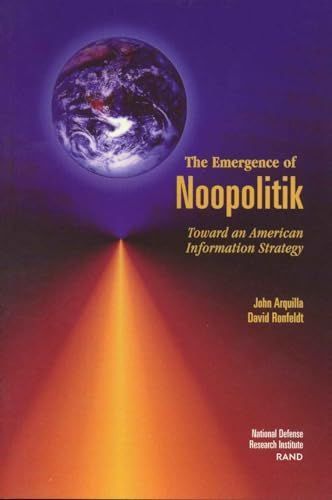
The Emergence of Noopolitik Toward An American Information Strategy
Strategy, at its best, knits together ends and means, no matter how various and disparate, into a cohesive pattern. In the case of a U.S. information strategy, this requires balancing the need to guard and secure access to many informational capabilities and resources, with the opportunity to achieve national aims by fostering as much openness as practicable. The authors' term to represent such strategic balancing is guarded openness. They go on to describe noopolitik (nu-oh-poh-li-teek)--an emerging form of statecraft that emphasizes the importance of sharing ideas and values globally, principally through the exercise of persuasive soft power rather than traditional military hard power. This study discusses the opportunities that may be raised by the emergence of noopolitik--ranging from construction of a noosphere (a globe-spanning realm of the mind) to recommendations that, for example, the U.S. military should begin to develop its own noosphere (among and between the services, as well as with U.S. allies). In the area of international cooperation, the authors offer strategic approaches for improving the capacity of state and nonstate actors to work together to address transnational problems. In addition, the authors recommend specific doctrinal developments, implied by the emergence of information strategy--including the pressing need to deal with such ethical concerns as the first use of information weapons, concepts of proportional response, and the need to maintain the immunity of noncombatants. Ultimately, the authors call for an innovative turn of mind as policymakers and strategists rethink how best to adapt to the epochal transformations being wrought by the information revolution.